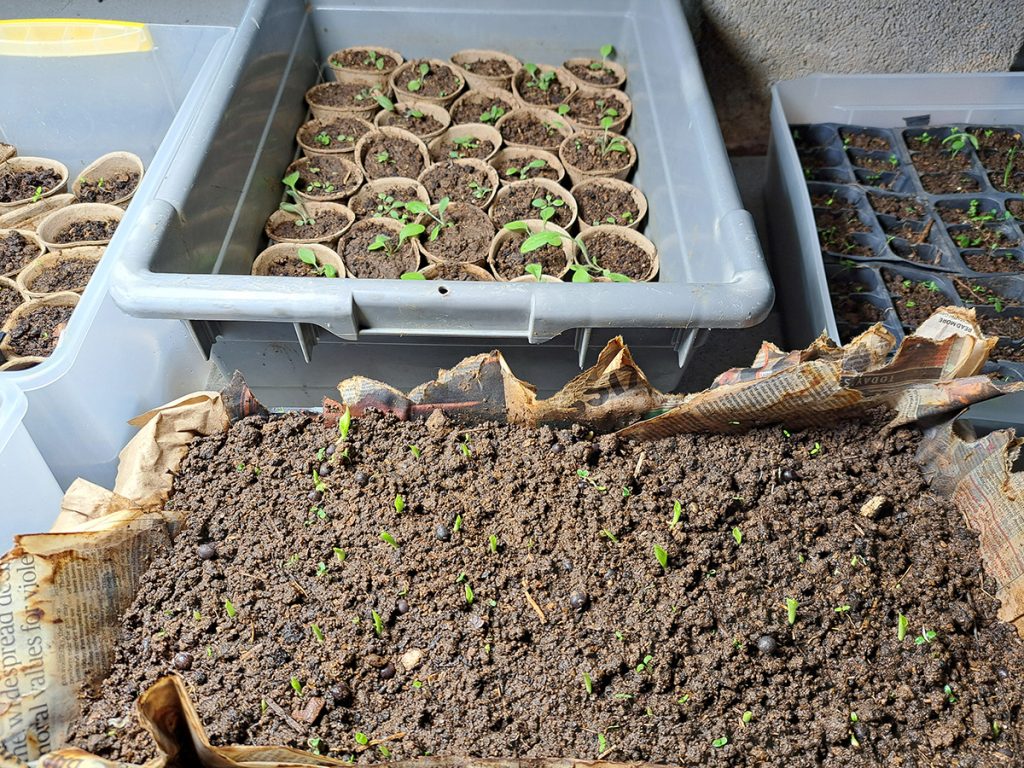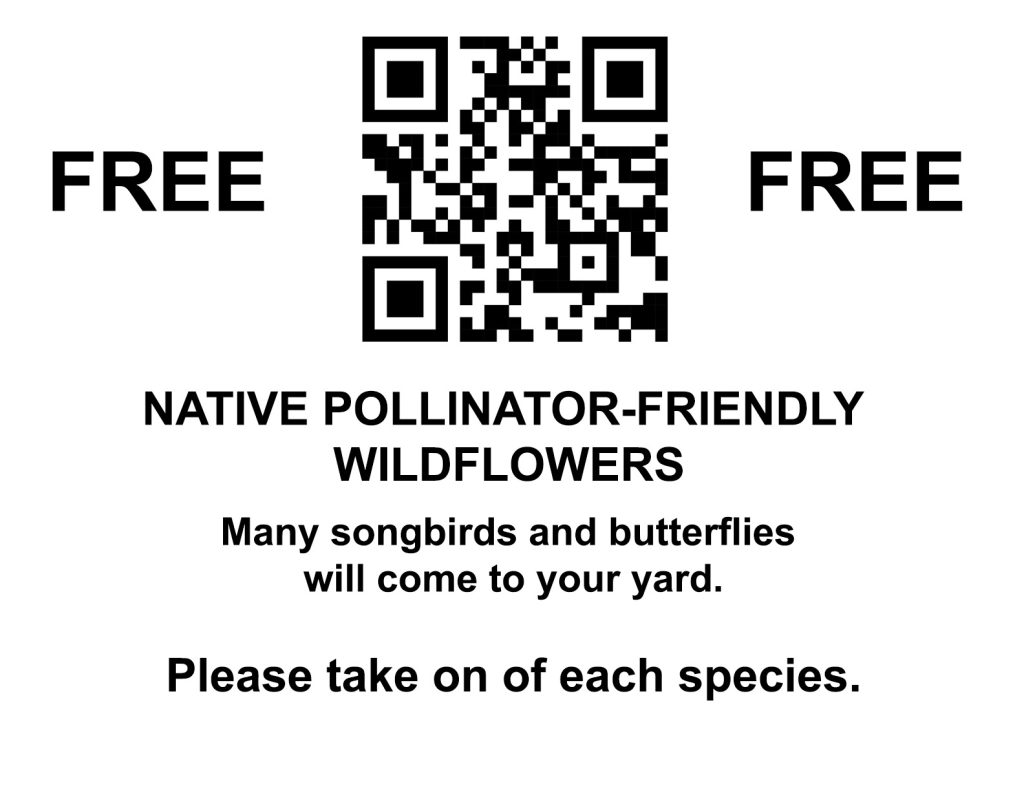I will be giving away native perennial wildflower seedlings again this June and July, 2025.
Native plants turn your lawn into a magnet for butterflies and hummingbirds and many other types of pollinators.
Many flowers can feed adult butterflies, but what is critical are native flowers that feed their caterpillars.
Balanced ecologies with birds and dragonflies help control mosquitos, fleas, houseflies, and other pests.
Email me at work if you are also restoring your lawn to meadow and have native plants to trade.
Plants to Eliminate
Use native plants to replace invasive plants with little ecological value.
The following plants are an ecological disaster in the southeastern United States and should be removed from lawns:
- Crepe Myrtle
- English Ivy
- Monkey Grass
- Chinese Privet Hedge
- Leland Cypress
- Bradford Pear
These particular invasive plants are as big a problem as kudzu. They displace native ecology and starve pollinators and are spreading in the wild each year.
Avoid corporate nurseries that sell these plants.
Instead, buy native plants online or at one of Metro Atlanta’s native plant nurseries.
Avoid foreign ornamentals like Hellebore and Hosta that don’t feed anything.
Don’t let inedible plants and mass extinction be your legacy.
Fun Fact
Many of the plants in my yard can be eaten in a time of disaster or famine, including non-standard items like baby muscadine leaves and tendrils.
Imagine trying to eat English ivy or crepe myrtle or any of the poisonous ornamentals in your lawn.
Native Pollinator Meadow Plants
Here are the native wildflowers in the pollinator meadow formerly known as my back yard. These perennial wildflowers would make good choices in most of the southeastern U.S.
Perennials
- Wild Indigo
- Joe Pye Weed
- White Boneset
- Scarlet Rose Mallow
- Swamp Rose Mallow
- Jerusalem Artichoke (very tall 8 ft+)
- Canna Lily
- Swamp Sunflower (takes over)
- Milkweed
- Swamp Milkweed
- Cutleaf Cone Flower
- Rattlesnake Master
- Wild Bee Balm
- Native Coral Honeysuckle
- Small Flower Leafcup
Annuals
- Cosmos
- Zinnias
- Wild Sunflowers
- Cherokee Black Beans
- Lambs Quarter
- Tiny Tomatoes
- Ground Cherries
- Mexican Sunflowers (zones moving northward)
My Back Yard
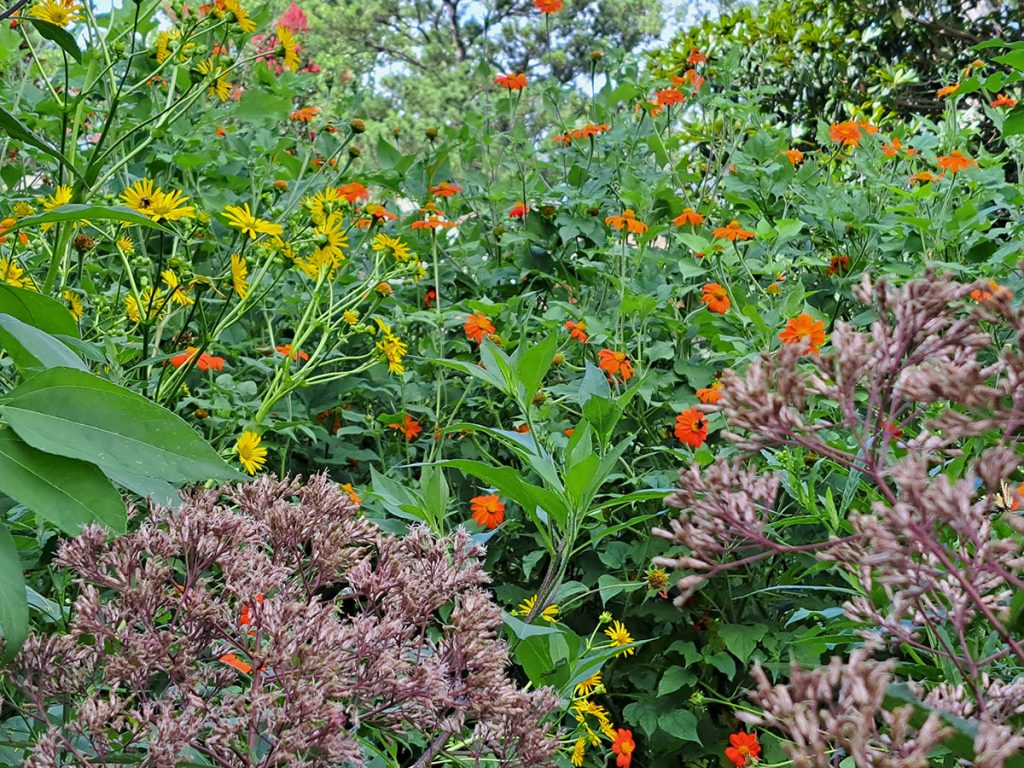
Patio Plant Nursery
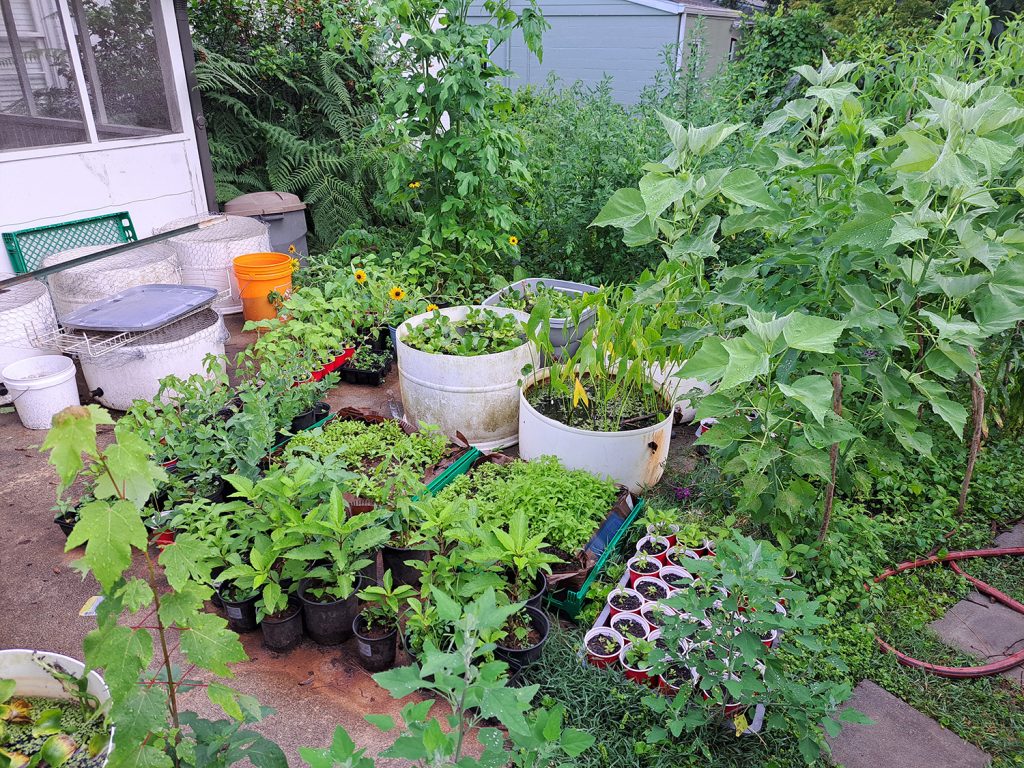
I’ve run out of space in my tiny yard, and so I have decided to colonize my entire neighborhood by giving away native perennial seedlings.
My garden now sporulates each year, and I hope to become something of a Johnny Appleseed for these critical plants.
Temporary Greenhouse
The area I use for my temporary greenhouse cabinet is seeded with tithonia and cosmos after the seedlings are gone. Tithonia doesn’t sprout until the ground warms up sufficiently in late April or May.
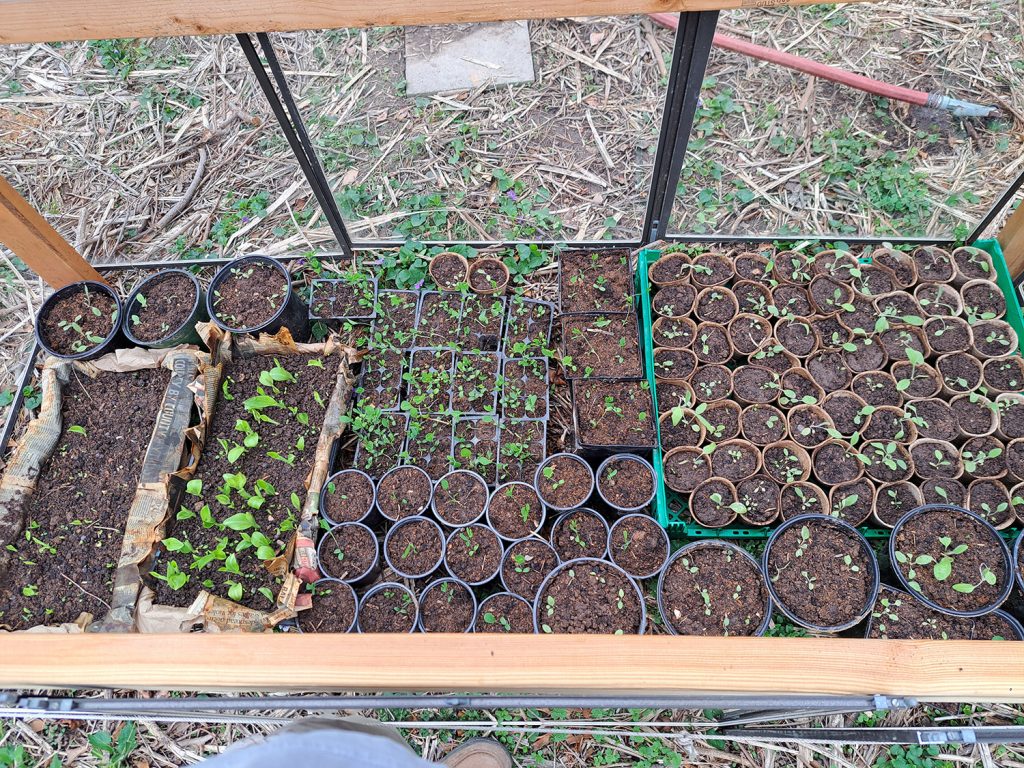
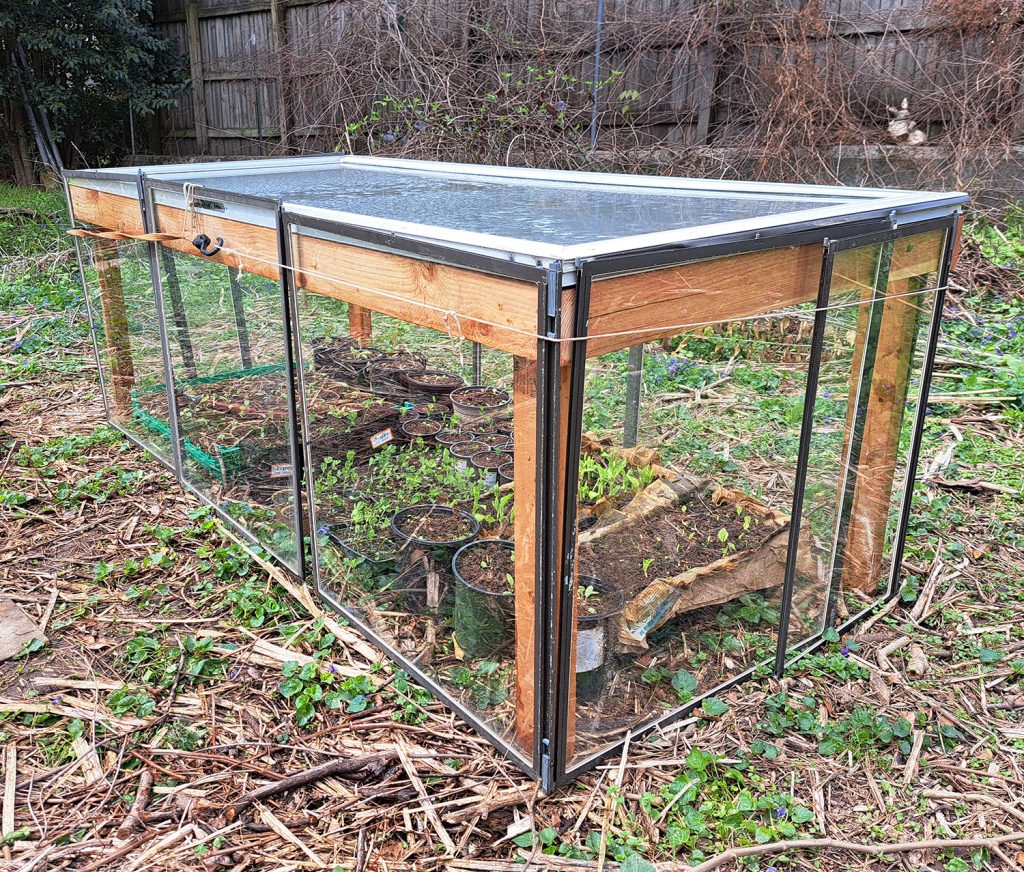
Crawlspace Seedlings
